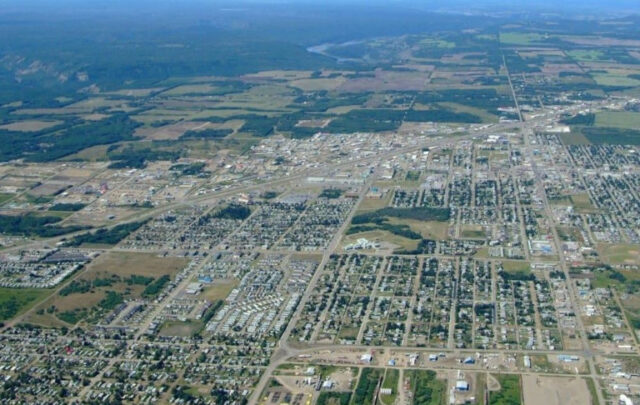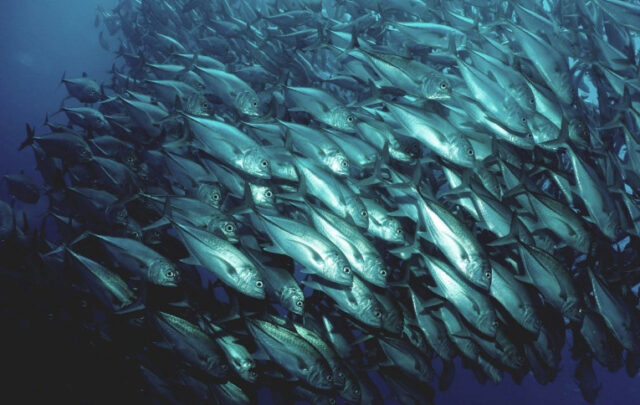Let us begin with the clear statement that asking whether you have to believe in climate change in no way alters the fundamental scientific consensus, or the tens of thousands of peer reviewed papers. I personally think the evidence for anthropogenic climate change is very clear. But that doesn’t change the fact that global warming at this point is viewed as an ideological issue, rather than scientific one, and that many people do not believe that it exists, or that humans cause it. In fact, while recent extreme weather has shifted the culture somewhat, it seems safe to say that a solid majority of Americans don’t take climate change very seriously. So do they have to?
In a perfect world, of course, science would be the only area of dispute – once the general scientific consensus emerges and all evidence is taken into account, everyone would do an analytic reading of the science and a majority would emerge from purely rational grounds. Since, however, we live on earth, not in a perfect world, and pure scientific reasoning has never ever been the grounds for the general public’s take on anything, almost certainly never will be, and is often not the grounds that even most scientists make most of their decisions, let us abandon that idea. I realize most scientists like to believe that if they just presented the right data or showed the right graph minds would be changed, but human beings don’t work that way – the triumph of reason is not going to happen any time soon.
It is, of course, very satisfying to persuade others to your point of view. It is also reasonable, when a great deal is at stake for those on either side of an issue to become angry and frustrated at the people who seem not to understand or care about things you care about. Since many lives, much money and much more is at stake, it is understandable that people on both sides of the issue become polarized and angry on this subject. For those who believe in anthropogenic global warming, what’s at stake is enormous. Millions of human lives. Food security for billions. Quality of life for everyone and for every future generation. It is also frustrating when your reasoning is disagreed with on grounds you consider irrational. No wonder they get angry at the “other side.”
Let us note, however, that what’s at stake on the other side is also significant. The economic and social costs of putting all of our time and resources into addressing climate change are non-trivial. For the many people who see more critical crises coming, this also risks costing lives and well being. It is conventional, of course, for one side of an issue to explain at length how others have no reason not to agree with them, but this is disingenuous. While there are some people who legitimately recognize that the evidence is better on one side of the issue than another, and who use climate change to manipulate, most people who do not take climate change seriously, or don’t believe it could be human caused believe this sincerely, right or wrong. Their hostility to the other side is based on a perception of dishonesty and misallocation of resources that is sincere – that is, if you believed this, you’d be pissed too.
Let us also note that among those who sincerely believe in climate change IS anthropogenic and that we SHOULD be doing something about it, the vast majority believe not that they should peNicharsonally transform their lives, but that SOMEONE ELSE, probably the government, should do something about climate change. Moreover, even most climate change believers express no real willingness to make sacrifices or fundamental changes in order to ensure that the precautionary principle is supported. Despite the fact that we know that we need to make drastic, near-term emissions reductions to reduce climate risk, most people, as Bill McKibben points out in his widely read Rolling Stone essay “Global Warming’s Terrifying New Math” have no interest in any solution that makes their own lives harder.
“People perceive – correctly – that their individual actions will not make a decisive difference in the atmospheric concentration of CO2; by 2010, a poll found that “while recycling is widespread in America and 73 percent of those polled are paying bills online in order to save paper,” only four percent had reduced their utility use and only three percent had purchased hybrid cars. Given a hundred years, you could conceivably change lifestyles enough to matter – but time is precisely what we lack.”
What they are happy to do is be politically angry at those who disagree with them – to categorize others as enemies of the future and themselves. The difficulty with this is that this incredible polarization has done no one any good – we are further now from making progress on climate change than we were five years ago – and with significantly less time to do it in. Feeling angry at the other side, organizing activities that only the left participates in and political opposition take more time than changing individual action, and are less productive in our deeply polarized US. At this point, climate change opposition has taken hold ideologically on the right, moderate right and most of the US center. Historically speaking, when the right, moderate right and US center agree on something, the left spends a lot of time tilting at windmills and it loses. As long as climate change is a politically polarized left-right issue, it is doomed to inaction.
I should say that I also do not agree with McKibben’s analysis of individual action here (indeed, I’ve had this discussion privately by email with McKibben previously, arguing that the emergence not of a bunch of single actions a la changing your lightbulbs, but a of a way of life that people can aspire to and adopt collectively is in fact, one of the most critical projects we can engage in), but I won’t take much time on it – Nicholas Arguimbau has already done a better job than I would at dismantling his argument, so we will lay that aside for today.
The larger question is this – if neither changing people’s practices habit by habit will work, nor will trying to take an issue that should be about science but is in fact about politics and removing its ideological taint while also changing the minds of a 100 million people or so, is there any other alternative? Do you, in fact, have to believe in global warming to do what is needed?
Well, in the purely political sphere, you probably do. Carbon tax legislation is probably only going to pass when/if a critical number of people agree on this issue. And the difficulty with this is that as climate change helps destabilize economy (note, I am not claiming it is the primary driver by any means, just that more and more disasters makes an already unstable economy weaker), and we also bear the costs of all sorts of other prior stupidities, it is less likely that many Americans, even if they do support ”Someone somewhere doing something about climate change” will actually support exercises on the necessary scale – because it would cost them economically. Claims that we can adapt smoothly to climate change without massive self-sacrifice are generally made on older analyses tend to be based on energy cuts that are far lower than necessary.
But what if you focus on ends and means, and shift the discussion away from one’s position on climate change, and towards the outcomes one wants to see? You do have to believe we have a problem of some sort in our culture – it could be a carbon emissions problem, of course, but it could also be an oil depletion problem. It could be a dependence on foreign resources, or a moral problem with the destruction of the underlying natural basis for human existence. It could be a religious problem with a way of life that has become both destructive and alien from founding principles, or an aesthetic problem with the fundamental ugliness and emptiness of a way of life. It could also be an economic problem – an increasing struggle to balance rising energy prices and the cost of natural disasters, occurring for whatever reason.
What I have found over the years is that on this ground, there are plenty of allies that cannot exist over one politicized single issue. Does that mean you can accomplish everything one would like to? No, almost certainly not – but in comparison to what we are accomplishing right now in terms of climate change (ie, nothing), it is possible to imagine making changes worth making in lifestyle, community, and at a host of political levels (smaller is often easier) if the ground shifts to other territory.
The local food movement is a primary example of how well this works – there are people who are into farmer’s markets and community gardens because they care about the carbon footprint of their eggplant, but there are also plenty of people in it for other reasons – for moral reasons, for reasons of food justice, to reduce the oil in their agriculture, because gardening is fun, because good food tastes good. The coalition of people who care about eating on various grounds has been highly successful in making real change – and fairly rapid change. I don’t need to agree with my neighbor about why we should have a local farmer’s market or a coop – I only need to share a view of the ends we would accomplish.
I admire Bill McKibben, and I agree with him about the critical importance of addressing global warming. But I think his tactics are wrong – I don’t see the political change he is hoping for happening, or happening fast enough. Yes, changing the world “one person at a time” is the wrong way, but so is fighting a battle that fundamentally is now about something else. Yes, there will come a moment when everyone more or less agrees we have to address climate change – but we can’t wait for that to happen, and it probably won’t happen soon. In the end, what we want is a world where we consume fewer resources and produce fewer emissions. It would be nice to be able to do that with a consensus about the grounds for doing so – but I think trying to make one is fundamentally a mistake. In the end, it is the outcomes that matter.
I will be clear – I think climate change is real, it is human-caused, and we are not going to do enough about it fast enough – we’ve made that clear. At the same time, I also think there is a real and fundamental difference between doing nothing and doing many things to ease the suffering. Human costs are very different in different scenarios. So the question becomes – what can we do to make people’s lives better in the future we are building for ourselves? How can we begin to imagine a different future, starting from the people we are, not the people we wish we were?
Sharon





